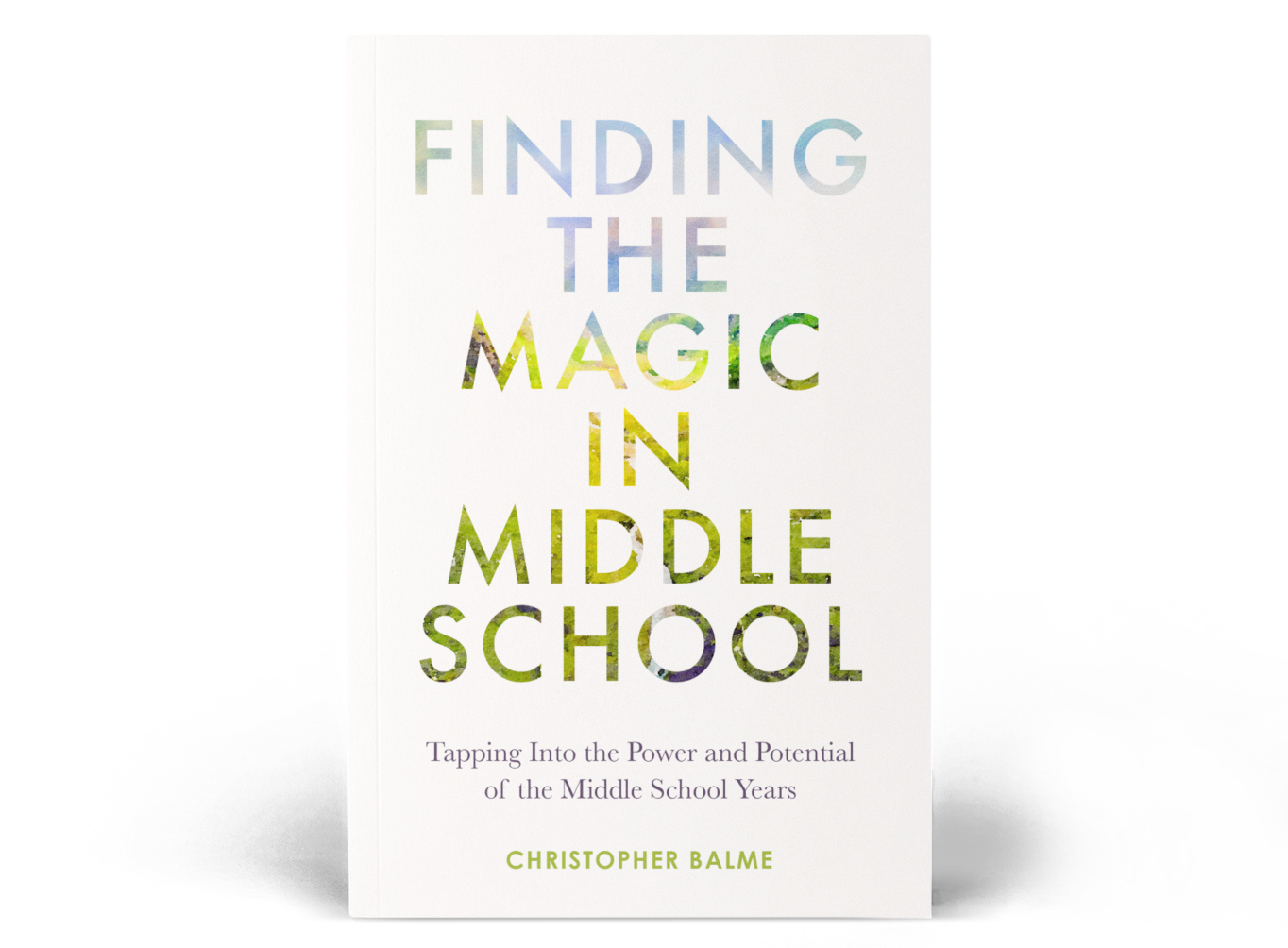Book Club Guide
For Finding the Magic in Middle School
Reading Finding the Magic in Middle School with others is an ideal way to explore the book. One of the key points the book makes is that parents or teachers of middle schoolers need to band together, since supporting a young person through these transformative years will push us to grow quickly as well. Below you’ll find three steps to get a book club discussion going.
Book Club Guide
1: How to get the book
You can order Finding the Magic in Middle School on Amazon, from your local bookshop (they can request copies via their distributor if they don’t have it in stock), or from your local library.
2: Guiding the Discussion
Let’s make it personal. At many points in the book, readers are invited to think back to their own middle school selves. From this vantage point we can find empathy and greater understanding for the middle schoolers in our lives. You might begin a book club discussion by asking members to share their middle school experiences. Who were they back then? What was most on their minds? How did they change during those years? What were friendships like?
Finding your stage. The book introduces the idea of three key developmental stages that adolescents go through, and which we repeat when we begin major new chapters of life, even well into adulthood. These stages are Belonging, Achievement, and Authenticity. Belonging is about wanting to feel accepted and welcomed more than anything else; Achievement is about striving for excellence in the eyes of others, wanting to show you can win the game; and Authenticity is the drive to be honestly and truly yourself, whether that gives you status or not. Where are you now in your work life? How about in your social life? Which stage do you think is primary for your child right now?
Becoming a guide. Another key point in the book is the invitation to shift from being a “boss” to a “guide”, someone who accompanies a young person through transformation but does not attempt to control every aspect of the process. Did you have a guide like this in your tween or teen years? If you didn’t, imagine you could go back in time and invent the ideal person to come into your adolescent life and help you through it—what would they be like? What does it mean to you to imagine being a guide, rather than boss, to your child?
Taking one more step. The book explains the Anchoring Effect, a bias which makes us tend to under-estimate our children. Our experience of them is weighted by their younger selves. It’s hard to forget how recently (in our eyes) they were not ready to cross the street alone, and now in middle school, they may be asking for dramatically more freedom and responsibility. They tend to over-estimate their readiness, and we tend to under-estimate, leading to a lot of preventable conflict between adults and middle schoolers. The solution isn’t to suddenly give them full freedom. But it may be to take one more step — to give them a degree more freedom and trust than you are fully comfortable with. What might this be? What freedoms you on the verge of giving to them? What if you gave some sooner, or set conditions they could meet sooner?
For Reflection Questions. Each chapter in the book concludes with one or two brief questions to prompt deeper reflection. Consider selecting a few of these for the group to explore together.
3: Invite the Author
Every month, author Chris Balme joins one book club reading the book, by Zoom, for free! Contact us here if you'd like to inquire about Chris joining your conversation to answer questions about the book or explore other topics around parenting and teaching middle schoolers.
